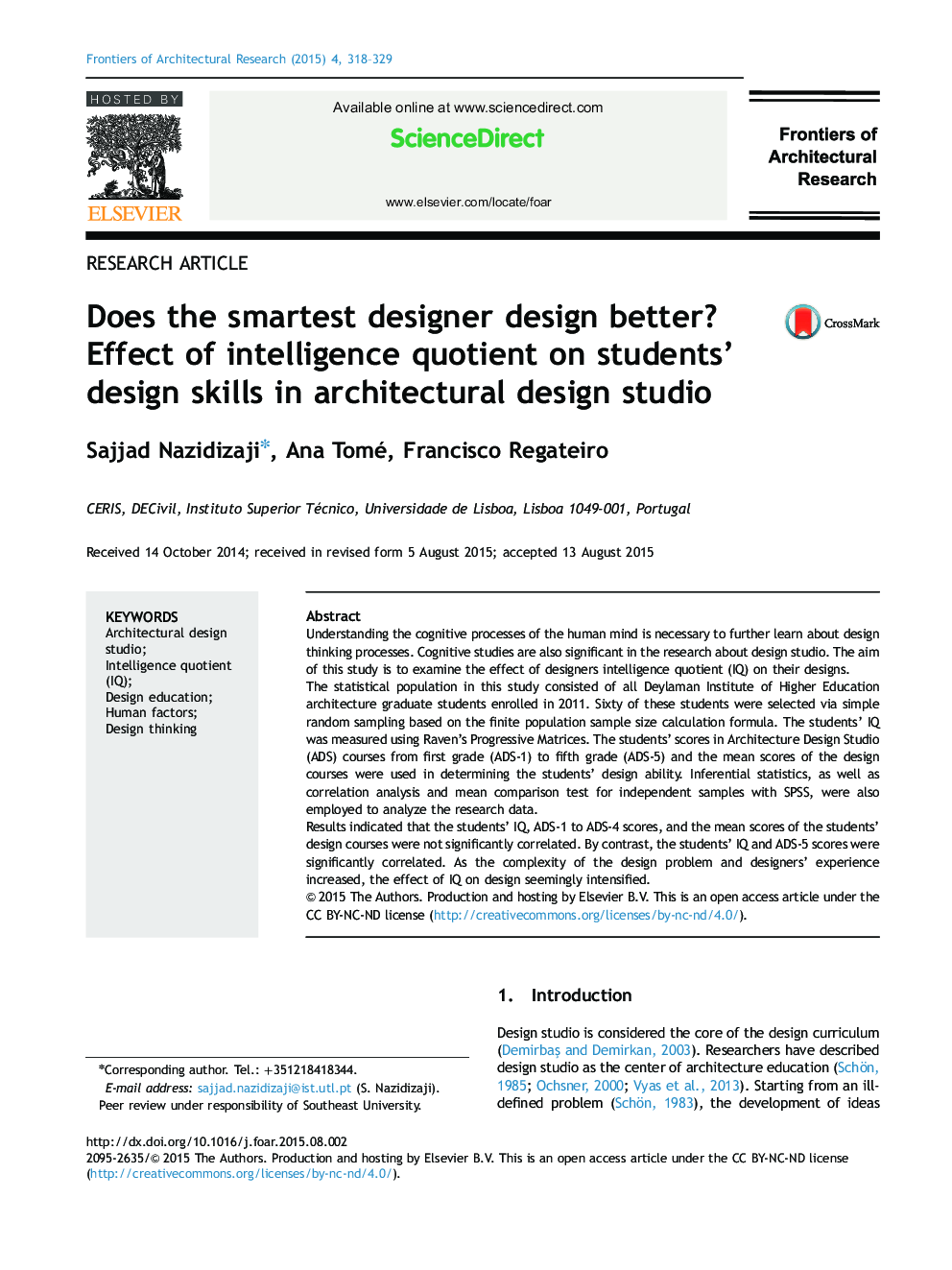| Article ID | Journal | Published Year | Pages | File Type |
|---|---|---|---|---|
| 270736 | Frontiers of Architectural Research | 2015 | 12 Pages |
Understanding the cognitive processes of the human mind is necessary to further learn about design thinking processes. Cognitive studies are also significant in the research about design studio. The aim of this study is to examine the effect of designers intelligence quotient (IQ) on their designs.The statistical population in this study consisted of all Deylaman Institute of Higher Education architecture graduate students enrolled in 2011. Sixty of these students were selected via simple random sampling based on the finite population sample size calculation formula. The students’ IQ was measured using Raven’s Progressive Matrices. The students’ scores in Architecture Design Studio (ADS) courses from first grade (ADS-1) to fifth grade (ADS-5) and the mean scores of the design courses were used in determining the students’ design ability. Inferential statistics, as well as correlation analysis and mean comparison test for independent samples with SPSS, were also employed to analyze the research data.Results indicated that the students’ IQ, ADS-1 to ADS-4 scores, and the mean scores of the students’ design courses were not significantly correlated. By contrast, the students’ IQ and ADS-5 scores were significantly correlated. As the complexity of the design problem and designers’ experience increased, the effect of IQ on design seemingly intensified.
